Elizabeth Losh, Jacqueline Wernimont (eds.): Bodies of Information: Intersectional Feminism and Digital Humanities (2018)
Filed under book | Tags: · affect, body, digital humanities, feminism, intersectionality, labour, materiality, new materialism, ubiquitous computing
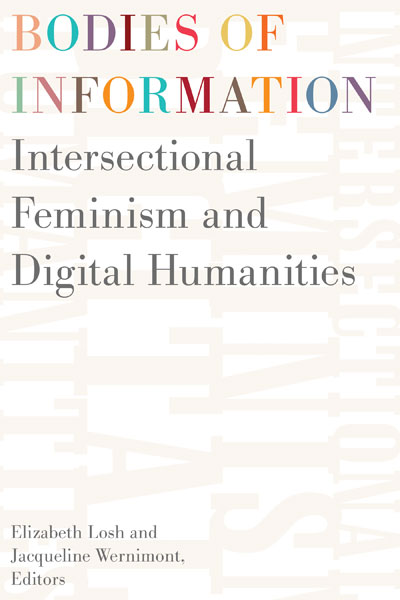
“In recent years, the digital humanities has been shaken by important debates about inclusivity and scope—but what change will these conversations ultimately bring about? Can the digital humanities complicate the basic assumptions of tech culture, or will this body of scholarship and practices simply reinforce preexisting biases? Bodies of Information addresses this question by assembling a varied group of voices, showcasing feminist contributions to a panoply of topics, including ubiquitous computing, game studies, new materialisms, and cultural phenomena like hashtag activism, hacktivism, and campaigns against online misogyny.”
Contributors: Babalola Titilola Aiyegbusi, Moya Bailey, Bridget Blodgett, Barbara Bordalejo, Jason Boyd, Christina Boyles, Susan Brown, Lisa Brundage, micha cárdenas, Marcia Chatelain, Danielle Cole, Beth Coleman, T. L. Cowan, Constance Crompton, Amy E. Earhart, Nickoal Eichmann-Kalwara, Julia Flanders, Sandra Gabriele, Brian Getnick, Karen Gregory, Alison Hedley, Kathryn Holland, James Howe, Jeana Jorgensen, Alexandra Juhasz, Dorothy Kim, Kimberly Knight, Lorraine Janzen Kooistra, Sharon M. Leon, Izetta Autumn Mobley, Padmini Ray Murray, Veronica Paredes, Roopika Risam, Bonnie Ruberg, Laila Shereen Sakr, Anastasia Salter, Michelle Schwartz, Emily Sherwood, Deb Verhoeven, Scott B. Weingart.
Publisher University of Minnesota Press, 2018
Debates in the Digital Humanities series, 4
Open Access
ISBN 9781517906108, 1517906105
xxv+491 pages
Neda Atanasoski, Kalindi Vora: Surrogate Humanity: Race, Robots, and the Politics of Technological Futures (2019)
Filed under book | Tags: · artificial intelligence, automation, capitalism, colonialism, ethics, feminism, labour, liberalism, machine, military, race, robotics, robots, technology, women, work

“In Surrogate Humanity Neda Atanasoski and Kalindi Vora trace the ways in which robots, artificial intelligence, and other technologies serve as surrogates for human workers within a labor system entrenched in racial capitalism and patriarchy. Analyzing myriad technologies, from sex robots and military drones to sharing-economy platforms, Atanasoski and Vora show how liberal structures of antiblackness, settler colonialism, and patriarchy are fundamental to human—machine interactions, as well as the very definition of the human. While these new technologies and engineering projects promise a revolutionary new future, they replicate and reinforce racialized and gendered ideas about devalued work, exploitation, dispossession, and capitalist accumulation. Yet, even as engineers design robots to be more perfect versions of the human—more rational killers, more efficient workers, and tireless companions—the potential exists to develop alternative modes of engineering and technological development in ways that refuse the racial and colonial logics that maintain social hierarchies and inequality.”
Publisher Duke University Press, Durham, NC, March 2019
Perverse Modernities series
ISBN 9781478003861, 1478003863
x+240 pages
Interview with authors: Lesia Pagulich, Tatsiana Shchurko (Feminist Critique, 2019).
Reviews:Sibille Merz (Ethnic & Racial Studies, 2019), Barbara Herr Harthorn (American Ethnologist, 2020), Anita Lam (Surveillance & Society, 2020), Andrea Flores (Information & Culture, 2020), Raquel Bosó Pérez (Sociology of Health & Illness, 2020), Nina Trige Andersen (Modern Times, c.2020), Kevin Pabst (Security Journal, 2020).
Comment (0)ArtLeaks Gazette (2013–)
Filed under magazine | Tags: · activism, art, cultural resistance, labour, politics, power, protest, strike, work
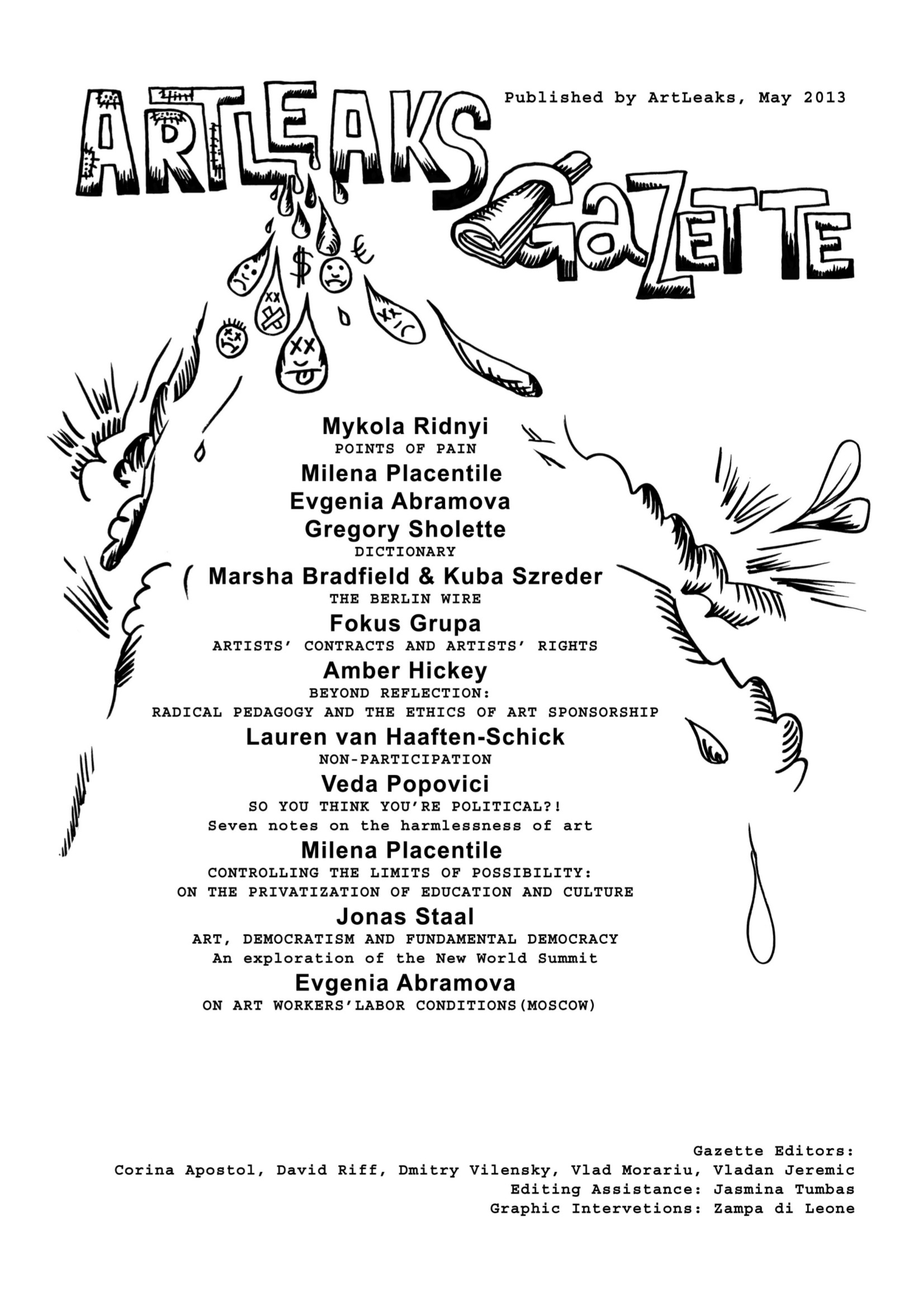
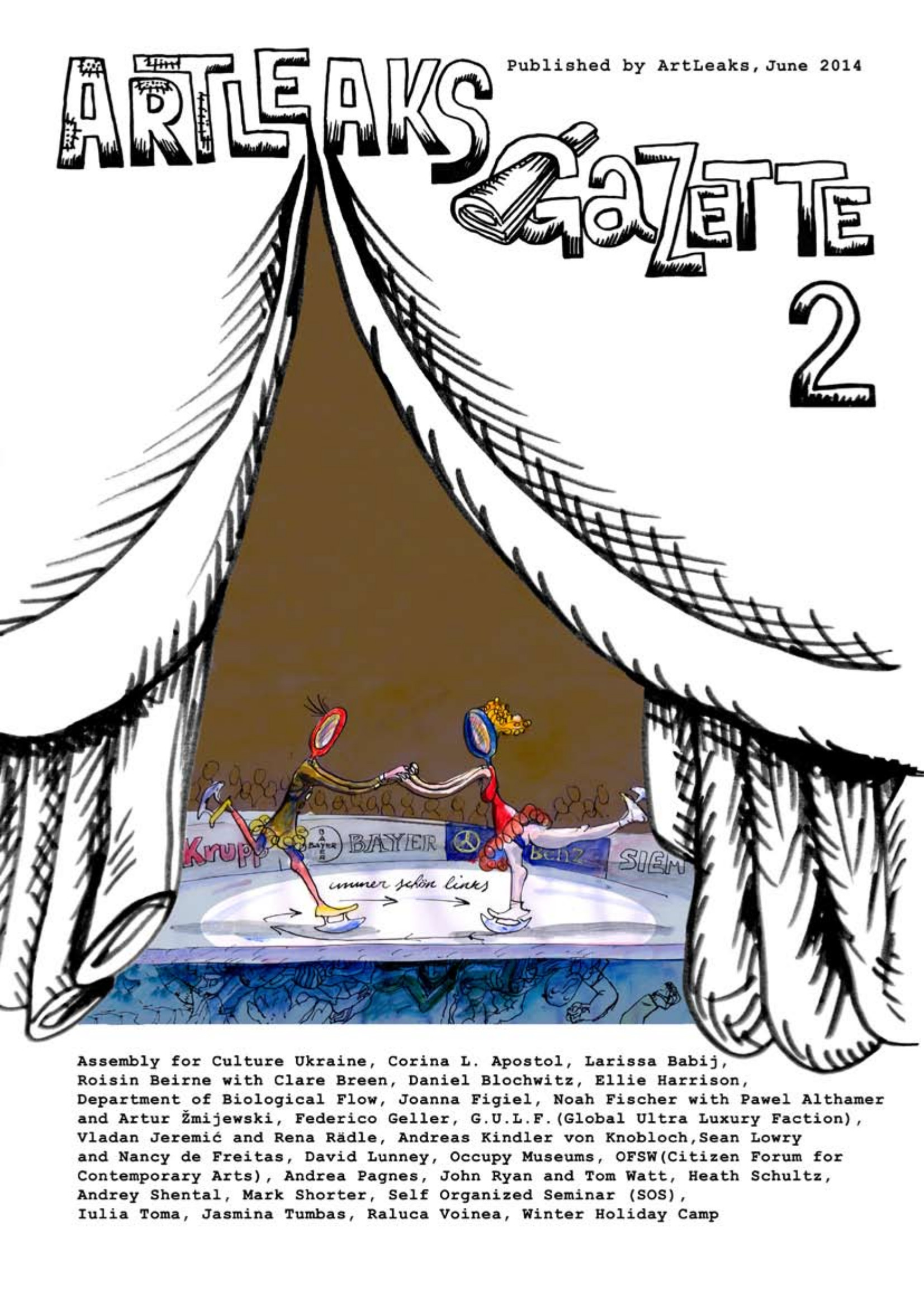
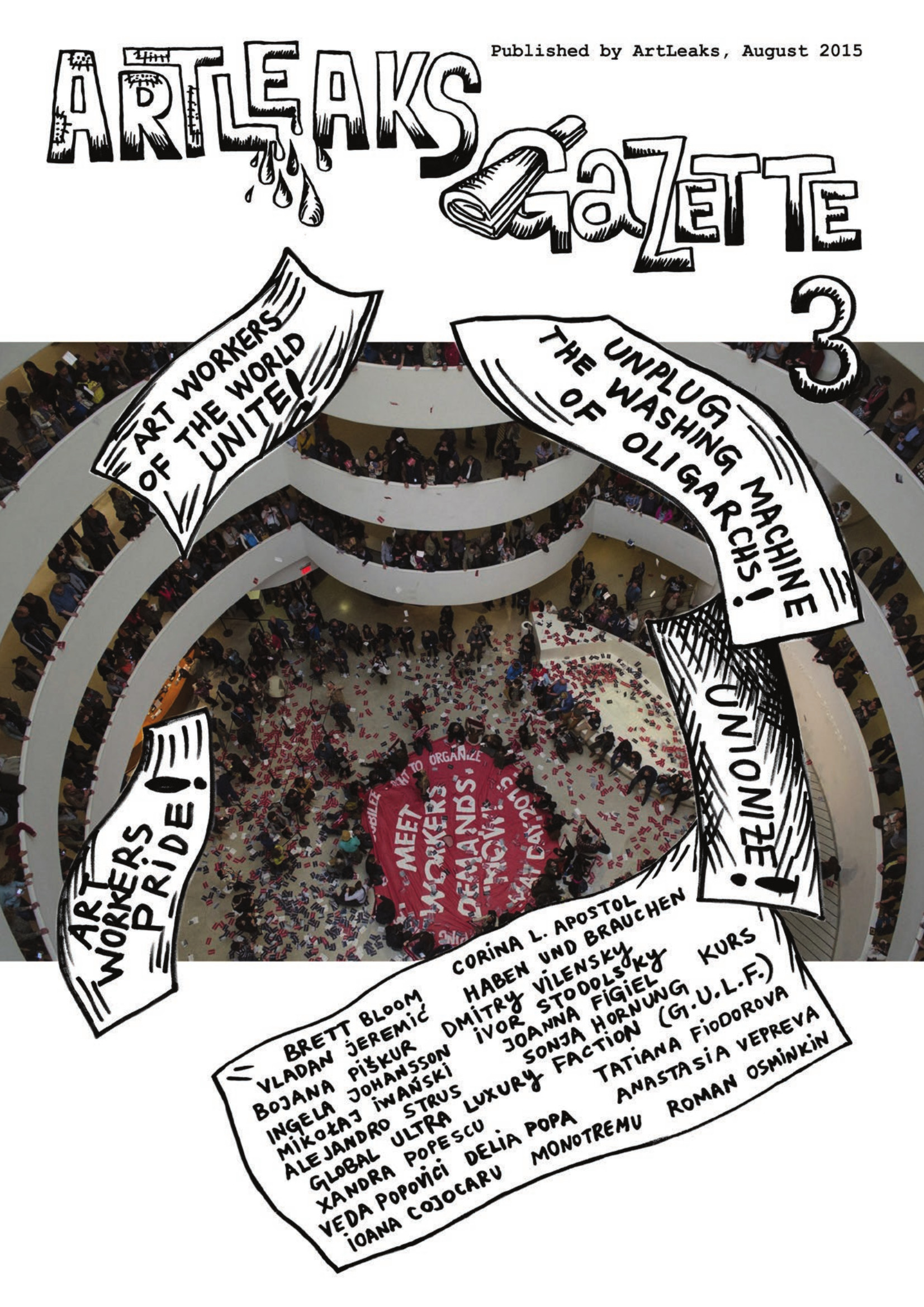
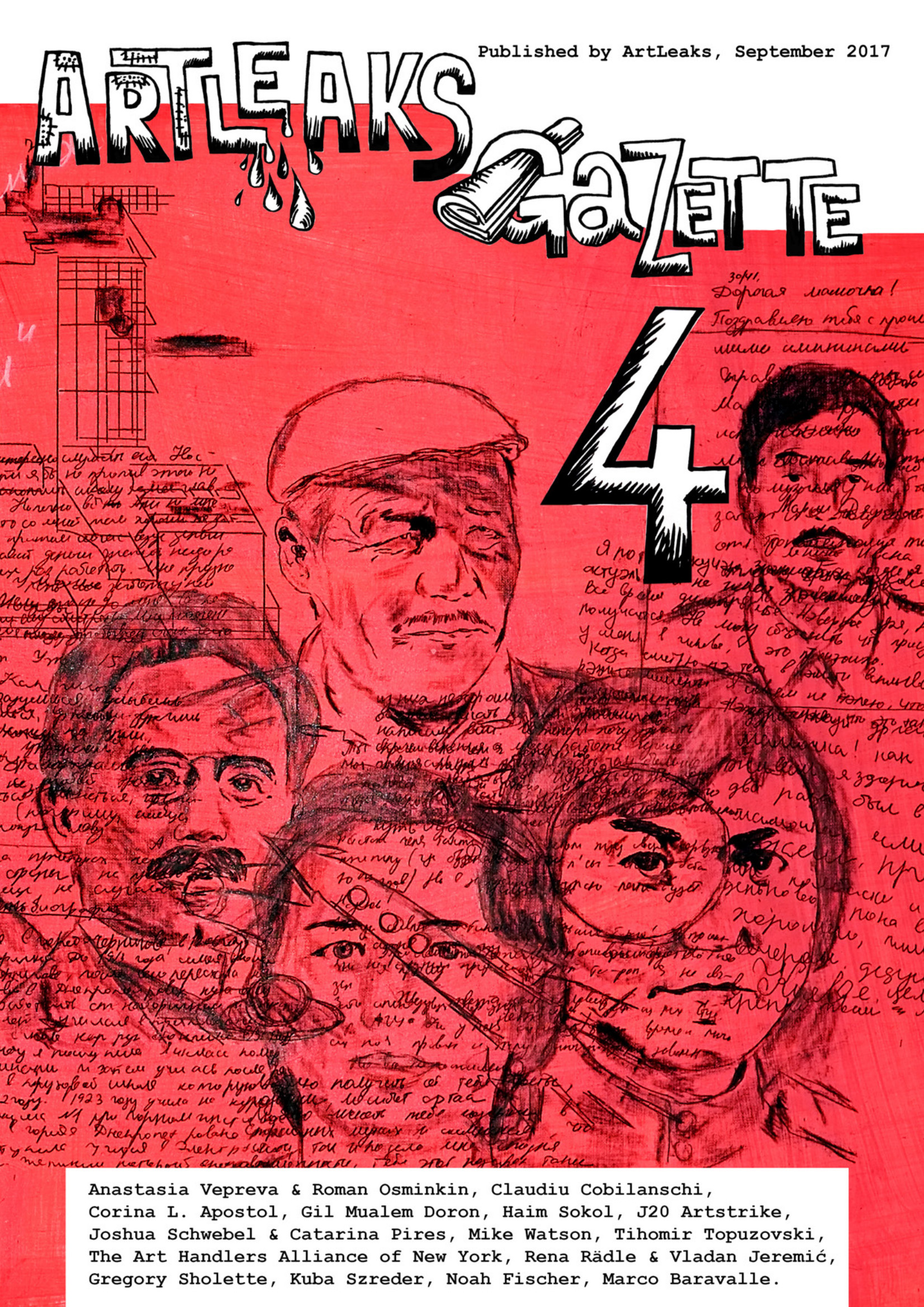


“ArtLeaks is a collective platform initiated by an international group of artists, curators, art historians and intellectuals in response to the abuse of their professional integrity and the open infraction of their labor rights. In the art world, such abuses usually disappear, but some events bring them into sharp focus and therefore deserve public scrutiny. Only by drawing attention to concrete abuses can we underscore the precarious condition of cultural workers and the necessity for sustained protest against the appropriation of politically engaged art, culture and theory by institutions embedded in a tight mesh of capital and power.”
Edited by Corina L. Apostol (1-6), Vladan Jeremić (1-6), David Riff (1), Dmitry Vilensky (1), Vlad Morariu (1), Raluca Voinea (2), Brett Alton Bloom (3), and Rena Rädle (4-6), Jasmina Tumbas (5)
Publisher ArtLeaks
Creative Commons BY-NC-SA License
Issue 1, May 2013: PDF, PDFs
Issue 2, Jun 2014: PDF, PDFs
Issue 3, Aug 2015: PDF, PDFs
Issue 4, Sep 2017: PDF, PDFs
Issue 5: Patriarchy Over & Out. Discourse Made Manifest, Apr 2019: PDF, Issuu (added on 2024-2-19)
Issue 6: There is No ‘Back to Normal’ – Art Workers in Times of (Post)Pandemic Crisis, Feb 2022: PDF (added on 2024-2-19)

